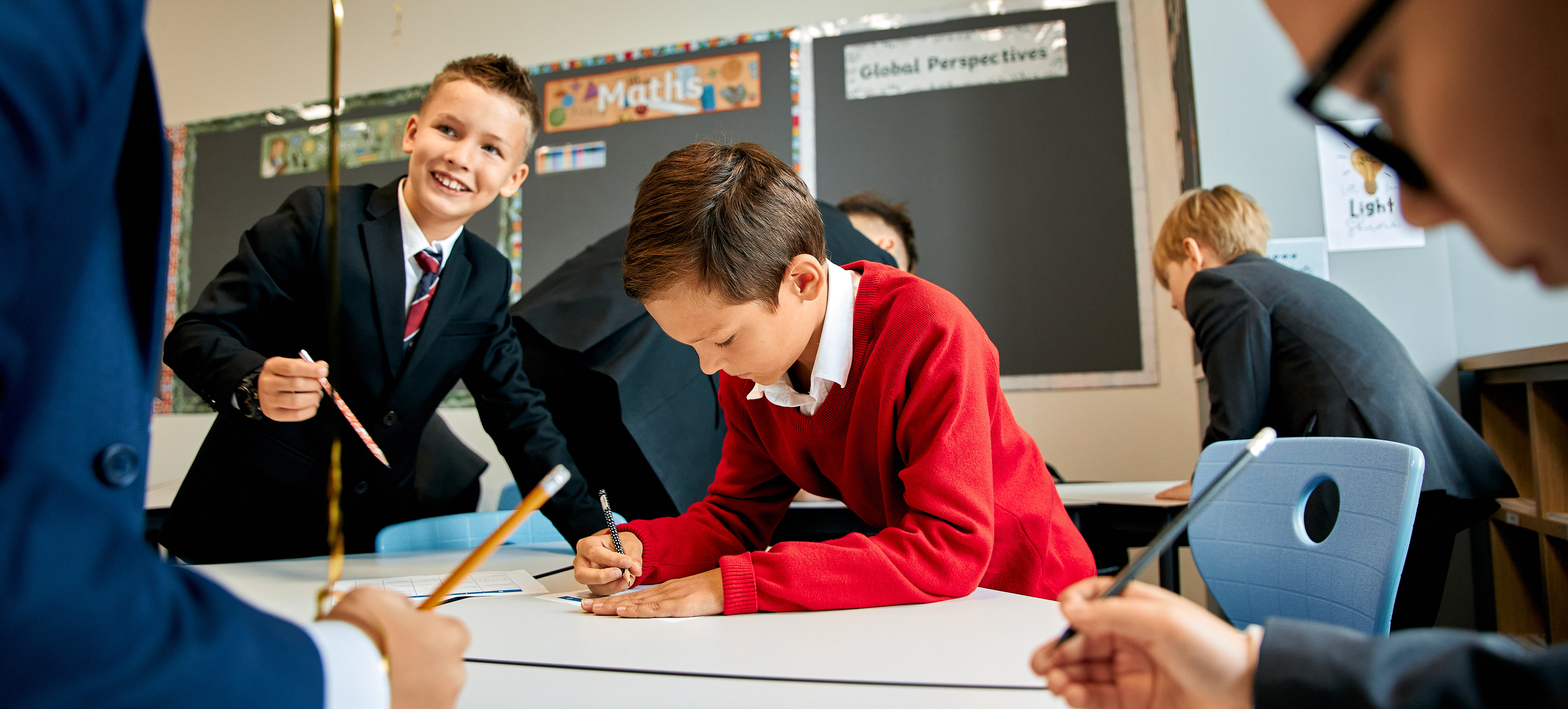
Imagine: it's morning, the alarm clock goes off, and your high schooler struggles to open their eyes, mumbles something about ‘five more minutes’ and barely manages to get ready for school. Sounds familiar? Now think about this: what if this lack of sleep isn't just laziness, but a real saboteur of academic performance? According to research, most teenagers sleep less than they need to, and this directly affects their grades and concentration. Let's take a look at what the statistics say and find out how sleep experts advise fixing this. After all, good sleep is not a luxury, but a superpower for the brain!
Statistics say
High school students are those who balance between lessons, clubs, gadgets and their personal lives. But the price of such a rhythm is high: according to experts' recommendations, teenagers aged 13–18 need 8–10 hours of sleep per day. But what is the reality? A study by British scientists published in the journal Sleep showed that 73% of high school students in the US and Europe sleep less than the norm — an average of 6–7 hours. The situation is similar in Russia: surveys show that one in four teenagers goes to bed after midnight because of social media and homework.
Now let's talk about the most important thing — the connection with academic performance. The same study involving 800 teenagers (who wore fitness bracelets for a week and filled out questionnaires about their studies) found that every hour of delayed sleep increases the risk of receiving a failing grade by 29%. Irregular sleep (sometimes early, sometimes late) is worse than simply not getting enough sleep: these kids are less likely to get top marks, more likely to repeat a year or even drop out of school. Why? Because the brain doesn't have time to ‘reboot’.
Another recent finding: Canadian scientists from Nature Human Behaviour tested 70 teenagers before their exams. Those who slept for 8 hours showed 20% better results in remembering sequences of events — exactly what is needed for history or biology. And if sleep is less than 7 hours and 25 minutes? Concentration drops, new knowledge doesn't stick, and emotions run high — hello, failing maths and arguments with friends. In the United States, they even conducted an experiment: they pushed the start of classes back an hour — and voila, sleep increased by 34 minutes, and grades improved significantly!
In short, the statistics scream: lack of sleep means lower grades on your report card. But the good news is that everything can be fixed. Let's move on to advice from the experts.
Advice from sleep specialists: how to sleep well for good academic performance
A sleep specialist is a neurobiologist who deals with the prevention and treatment of sleep disorders. We have compiled recommendations from leading experts, including Professor Alice Gregory (co-author of Sleepy Tales) and Michael Breus, known as the ‘King of Dreams.’ Their words are not theory, but proven methods for teenagers.
- Set a routine, like an alarm clock for classes. ‘Go to bed and get up at the same time — even on weekends. This synchronises your internal clock and increases melatonin, the sleep hormone,’ advises Alice Gregory. No more than an hour of ‘extra sleep’ on Saturday, otherwise your rhythm will be disrupted. The result? Better memory and focus in class.
- Put away your gadgets an hour before bed. The blue light from screens kills melatonin in the same way that caffeine stimulates you. Remove phones and tablets from the room — it's not a punishment, but a gift to your brain. Instead of scrolling, read a book or talk to your loved ones.
-
Make your bedroom a ‘relaxation zone’. Cool temperatures (18–20°C), dim lighting and fresh sheets are essential. Gregory adds: ‘A warm bath before bed dilates the blood vessels, and cool air helps the body cool down — the perfect combination for falling asleep quickly.’ No stress: if you've had a hard day, discuss it during the day, not before bed.
-
Eat ‘sleep-inducing’ foods and exercise. Avoid chocolate and cola in the evening — caffeine lasts 6–8 hours. And during the day — exercise: ‘Physical activity during the day improves sleep at night, but not before bed,’ says Michael Breus, PhD, clinical psychologist, diplomat of the American Board of Sleep Medicine and member of the American Academy of Sleep Medicine. Aim for 30 minutes of walking or yoga.
-
Early bedtime is the key to ‘As’. Go to bed before 10 p.m. to get 8-9 hours of sleep. ‘Early sleep is an investment in tomorrow: the brain consolidates knowledge and cleanses toxins,’ explains Gregory. Not too early, so you don't toss and turn — choose a time based on how tired you are.
-
Bonus from Breus: "Sleep is not just rest, but a time when the brain rehearses skills. Lack of sleep steals creativity and strategic thinking — the very things you need for studying.‘ Gregory adds: ’Make sleep enjoyable — praise yourself every time you go to bed and get up on time.
Rise and shine! Sleep is your best teacher
The statistics don't lie: high school students who sleep like clockwork study better, are less nervous and smile more often. And the advice from sleep specialists is simple: a routine, no gadgets and a cosy bedroom. Start today — go to bed 15 minutes earlier, and in a week you'll see the difference. Have good nights and excellent grades!



